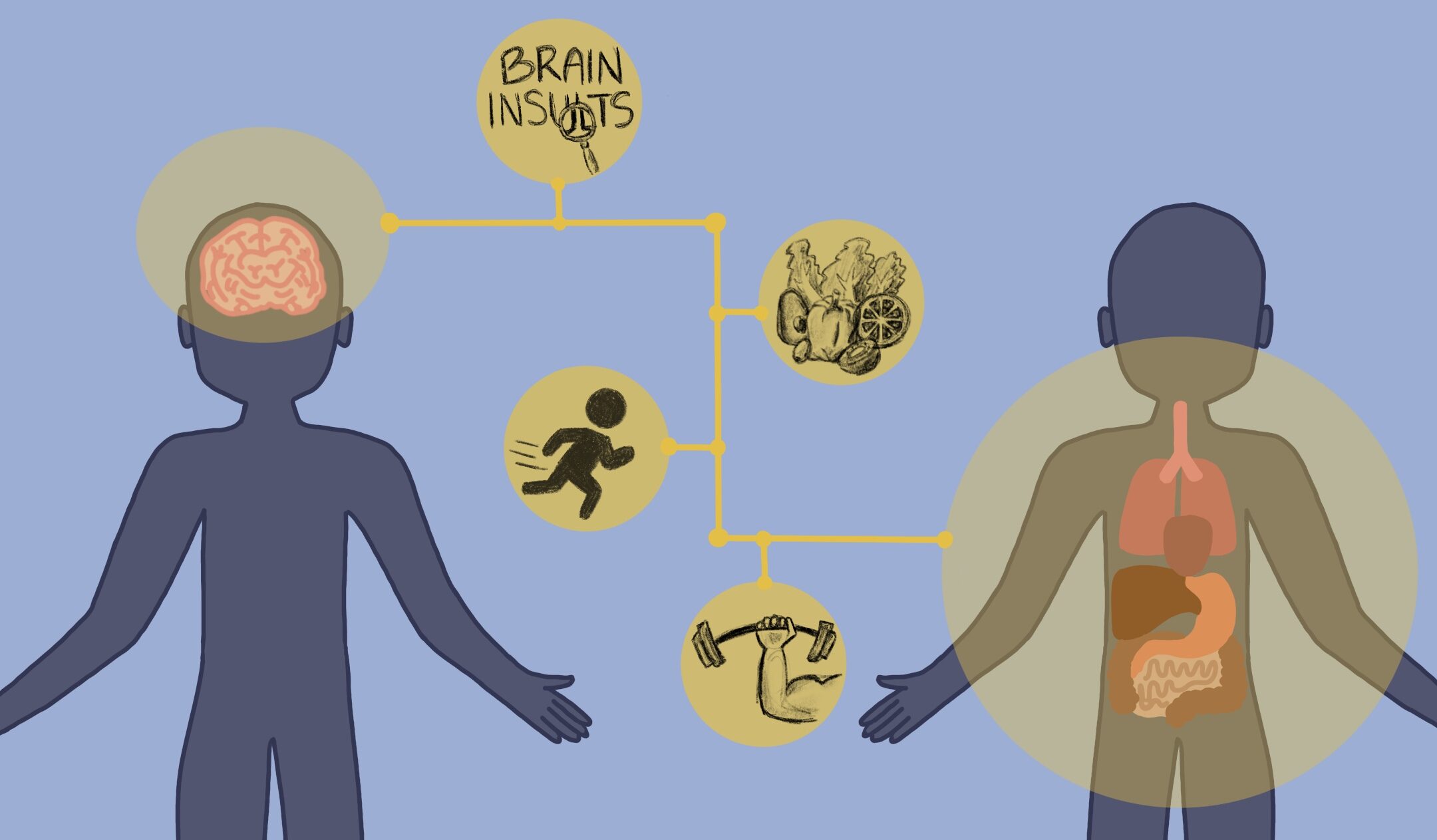Lifestyle as Medicine
About the NeuroLife Laboratory:
The NeuroLife Laboratory seeks to understand the impact lifestyle can have on neurological disorders; we operate with the end goal of utilizing changes in lifestyle as a natural medicine to reduce the burden of neurological disorders. Focusing on how common aspects of one’s life (diet, exercise, and socialization) can impact the capacity of the central nervous system to overcome neurological disorders, our research has been the foundation of the leading modern knowledge regarding the impacts of diet and exercise on brain repair and plasticity.
We have explored the impacts of various lifestyle choices–exercise, diet, and stress–on one’s health. Exercise stimulates the hippocampus region of the brain, which is crucial for learning and long-term memory. This stimulation causes the production of new nerve cells, which was previously thought to be impossible after a human has surpassed 30 years of age. Our research suggests that exercise increases plasticity in both injured and uninjured nervous systems. Additionally, through experimentation, we have found that the incorporation of omega-3 fatty acids in one’s diet can assist in improving one’s cognition, increasing one’s synaptic plasticity, and supporting one’s brain repair after traumatic brain injury. Lastly, after testing, we found that the inclusion of curcumin, a component of the spice turmeric, in a test subject’s diet served to offset the negative effects of traumatic brain injury, reduce oxidative damage, and increase the levels of proteins in the brain that are associated with lower levels of stress, depression, and anxiety.
Our research has shown us, and the world, that one’s health is directly influenced by one’s way of life. With broad applications to the treatment of frequent health problems such as stress, obesity, diabetes, addiction, trauma, neurodegenerative diseases, and psychiatric disorders, our studies have attracted the attention of many international media outlets: National Geographic, The Times of India, and The Economist.
Investigating Questions in Neuroscience & Integrative Biology
- How can we use the power of exercise and diet to reduce the burden of brain disorders such as traumatic brain injury and Alzheimer’s disease?
- What brain and body regions are the most vulnerable to the effects of exercise and diet?
- What molecular mechanisms are involved in the effects of diet and exercise?
- Can we heal the brain through body intervention?
- What is the role of the autonomic nervous system on brain-body communication after traumatic brain injury?
- What optimal combination of diet and exercise can boost brain health and reduce the effects of brain disorders?
Website designed by: Meizhu Chai and Junman Wang


